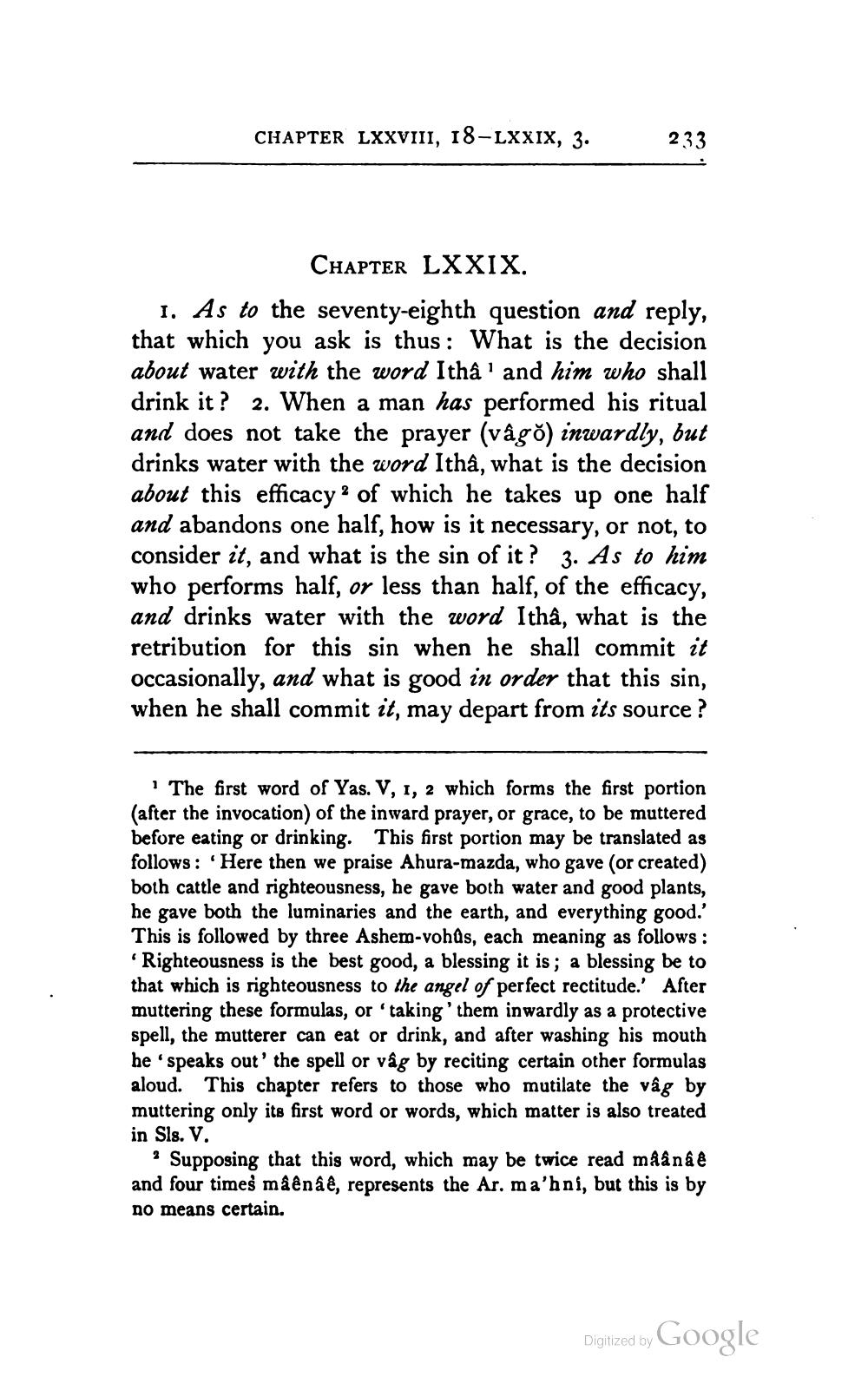________________
CHAPTER LxxvIII, 18-LXXIX, 3.
233
CHAPTER LXXIX. 1. As to the seventy-eighth question and reply, that which you ask is thus: What is the decision about water with the word Itha ' and him who shall drink it? 2. When a man has performed his ritual and does not take the prayer (vågo) inwardly, but drinks water with the word Ithâ, what is the decision about this efficacy o of which he takes up one half and abandons one half, how is it necessary, or not, to consider it, and what is the sin of it? 3. As to him who performs half, or less than half, of the efficacy, and drinks water with the word Ithâ, what is the retribution for this sin when he shall commit it occasionally, and what is good in order that this sin, when he shall commit it, may depart from its source ?
1 The first word of Yas. V, 1, 2 which forms the first portion (after the invocation) of the inward prayer, or grace, to be muttered before eating or drinking. This first portion may be translated as follows: 'Here then we praise Ahura-mazda, who gave (or created) both cattle and righteousness, he gave both water and good plants, he gave both the luminaries and the earth, and everything good.' This is followed by three Ashem-vohas, each meaning as follows:
Righteousness is the best good, a blessing it is; a blessing be to that which is righteousness to the angel of perfect rectitude.' After muttering these formulas, or taking 'them inwardly as a protective spell, the mutterer can eat or drink, and after washing his mouth he speaks out' the spell or våg by reciting certain other formulas aloud. This chapter refers to those who mutilate the våg by muttering only its first word or words, which matter is also treated in Sls. V.
* Supposing that this word, which may be twice read måana & and four times mâên kê, represents the Ar. ma'hni, but this is by no means certain.
Digitized by Google




